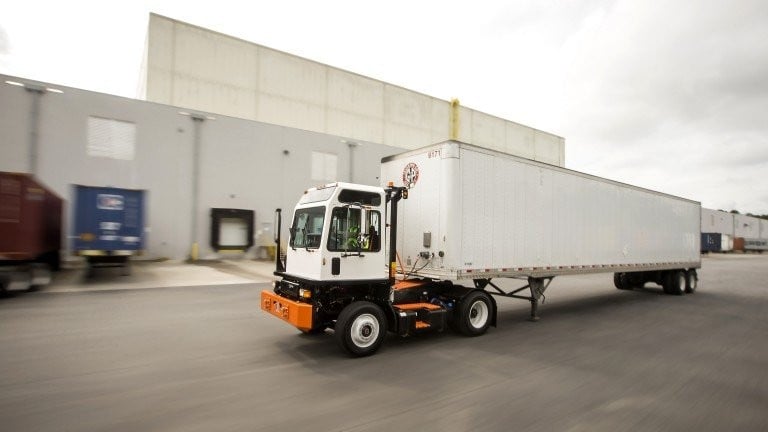How Volvo Penta engineers are helping OEMs make the transition to electrification
Emobility will play a key role in Volvo Penta's mission to become a world leader in sustainable power solutions. To better understand the current challenges around emobility, Volvo Penta engineers have been viewing things from an operator's and OEM's standpoint.
The move to electric power solutions can't happen at the flick of a switch. There is a lot to understand and overcome when it comes to this technology and how it will be implemented by Original Equipment Manufacturers (OEMs). To gain a deeper understanding of the challenging journey that OEMs must embark upon, Volvo Penta acquired a terminal tractor - a viable product line for electrification - and proceeded to begin with the conversion to an electric driveline in 2015.
Peter Brankell - an application engineer and one of the key players in the formation of Volvo Penta's Industrial Electromobility business - brings a great deal of knowledge and expertise to this project. He explains: "From the beginning, we knew material handling would be one of the main markets for electrification, with its known drive cycles, high machine utilization, and the fixed environment of a harbour with a good power infrastructure. In a wider context, it would help us gain better insight into the challenges and opportunities in the installation process, which is paramount when designing driveline solutions for OEMs."
Most manufacturers are skilled at implementing an internal combustion engine into their driveline but developing a wholly electric driveline is a completely different scenario. It not only requires the integration of a whole array of different components, but complex software calibration and new forms of intensive testing methods to optimize system behaviour for precise performance across a range of different vehicles.
Hours upon hours of field testing
Carrying out real-life testing in Sweden's Port of Gothenburg, the tractor was initially run with its existing diesel driveline, with its performance monitored to provide a baseline for future developments.
For internal testing purposes, the tractor was then rebuilt in the same diesel-electric parallel hybrid configuration used in Volvo's hybrid buses. Simulations of different drive cycles were performed on this diesel-electric parallel hybrid version of this tractor. This testing eventually confirming a 30 percent increase in efficiency over a typical operation cycle. It was clear the team had created a successful proof of concept that was ready for market feedback and could be applied to off-road applications.
The tractor was then converted to fully electric using proven electromobility technology from Volvo Group, namely the batteries and a pair of electric motors connected to the gearbox. However, the applications Volvo Penta is working with have more space restrictions in general compared to Volvo trucks and bus vehicles. Therefore, Volvo Penta adapted the packaging solution of the driveline to the terminal tractor design.
Extensive testing then ensued, with the fully-electric tractor configuration accumulating 440 hours over four months at the port as everything from durability to driveability was gradually enhanced, before another 300 hours of testing with simulation models followed on a functional test platform at Volvo Penta's facilities in Gothenburg.
The Rosenbauer electric fire truck
The tractor with the electric driveline was first exhibited at TOC 2019, and the following year further proof of the driveline's great potential came with the announcement that Austrian OEM Rosenbauer would be using it in its forthcoming municipal fire truck, RT Revolutionary Technology. This electric fire truck was purpose-built to take advantage of the new technology, enabling major enhancements in terms of lowering its center of gravity and improving access for firefighters carrying heavy equipment.
Once Rosenbauer's electric fire truck goes into production this year, the terminal tractor will continue to play a key role as a test platform for Volvo Penta engineers to adapt their electromobility portfolio to future vehicle partnerships. The combination of components can remain generally unchanged, just leaving the inevitable software and wiring changes to meet new demands.



